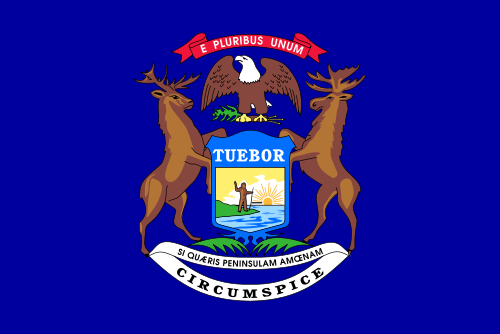Ten candidates are running in a nonpartisan primary election for mayor of Detroit, Michigan, on Aug. 3. Media coverage has focused on incumbent Mike Duggan and challengers Anthony Adams and Tom Barrow. Kiawana Brown, Myya Jones, Jasahn Larsosa, Charleta McInnis, Danetta Simpson, Art Tyus, and Dallias Wilcoxon are also running. The top two candidates will advance to the general election on Nov. 2.
Duggan was first elected mayor in 2013 when he defeated opponent Benny Napoleon (D) 55% to 45%. In 2017, he was reelected by a margin of nearly 44 points, defeating Coleman Young II (D) 71.6% to 27.8%.
Before becoming mayor, Duggan was president and CEO of Detroit Medical Center from 2004 to 2012. He was assistant corporation counsel for Wayne County from 1985 to 1986, deputy Wayne County executive from 1987 to 2000, and Wayne County prosecutor from 2000 to 2001. Governor Gretchen Whitmer (D) and former gubernatorial candidate Abdul El-Sayed (D) have endorsed Duggan. Duggan said that, if re-elected, he would “work every day to continue to make sure every neighborhood has a future and every Detroiter has a true opportunity to achieve your dreams.”
Adams is an attorney and was deputy mayor of Detroit under former Mayor Kwame Kilpatrick (D). He was also an executive assistant to Mayor Coleman Young, was a board member and general counsel for Detroit Public Schools, and was interim director of the Detroit Water and Sewerage Department. Adams said his “extensive leadership experience, unwavering commitment, and enlightened skill-set uniquely position him to move the city of Detroit forward” and he is “committed to serving the ordinary people of Detroit and not Special Interest Groups.”
Barrow is a practicing certified public accountant, led the civic group Citizens for Detroit’s Future, and was an advocate for changes to the municipal election system. This is Barrow’s fifth mayoral run and the second time he has competed against Duggan. In his four previous campaigns, Barrow advanced from the primary to the general election three times: in 1985, 1989, and 2009. Barrow said he would run a campaign based on local pride: “Detroit is in my DNA. Detroit is a city I love and respect deeply. People know that I care, that I will look out for them and will protect them and not allow them to be misused.”
Economic development and public safety have been major issues in the race. Duggan said he would work with the city council and manufacturers to bring more high-paying jobs into the city. Adams said he would support a universal basic income plan and an income-based water billing system and emphasized early intervention as a means to reduce crime. Barrow also supported a water affordability program for Detroit residents and said neighborhood revitalization projects should focus on a broader area and not just downtown.
The city of Detroit uses a strong mayor and city council system. In this form of municipal government, the city council serves as the city’s primary legislative body and the mayor serves as the city’s chief executive. The mayor is responsible for proposing a budget, signing legislation into law, appointing departmental directors and committee members and overseeing the city’s day-to-day operations. The mayor also possesses veto powers, though the Detroit city charter establishes procedures whereby city council may override mayoral vetoes under certain circumstances.
Additional reading:


